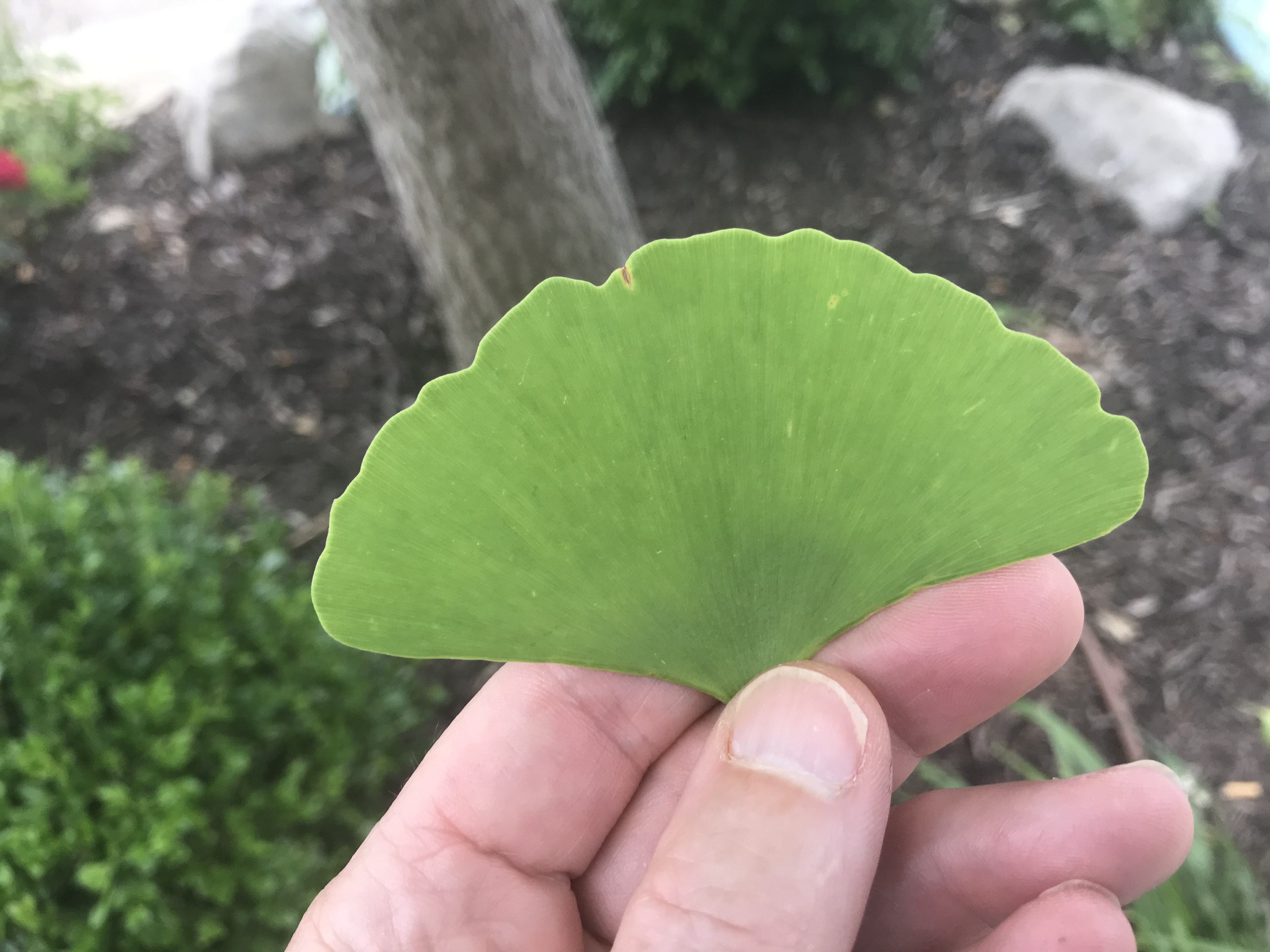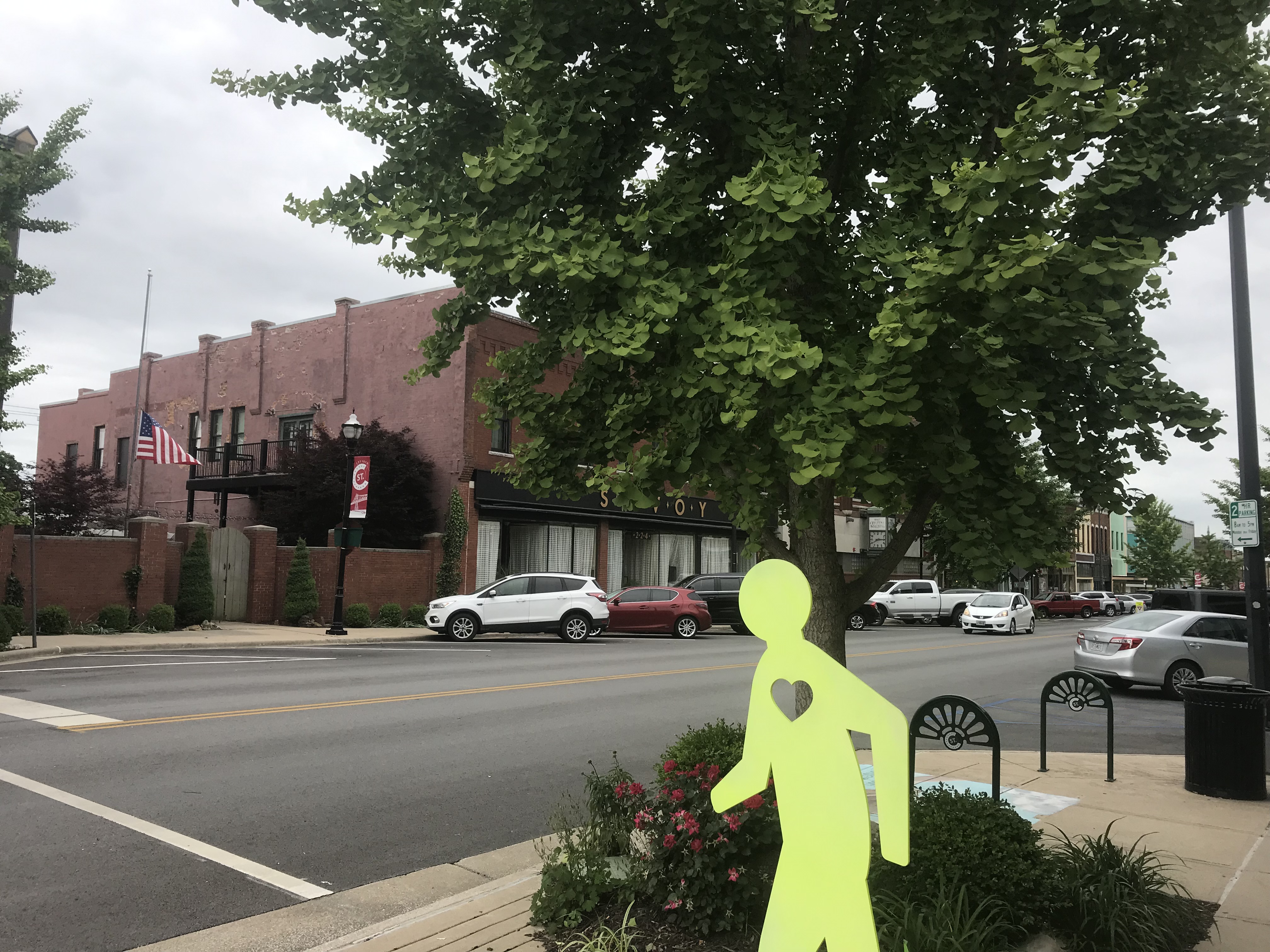The ginkgo trees of Commercial Street, planted and paid for by the city, are a nuisance.
That's the best word for now — “nuisance” — says Colten Harris, Springfield's superintendent of streets.
In late summer or fall, the female ginkgoes drop a fleshy fruit that has a smell likened to dirty tennis shoes — and that's the most flattering description.
Others liken the fragrance to vomit or dog poop.
Here's a fun fact: The fruit of the ginkgo contains high levels of butyric acid, the same chemical found in human vomit.
The other nuisance is that these fruits are abundant, slimy and slippery and when you step on them you can lose your footing and topple — especially if you're already gagging from the smell.
Irene Schaefer, a business owner on Commercial Street, has experienced the smell.
It's not pleasant, she assures me.
I ask what she thinks it smells like — although for my money it's tough to top “vomit.”

“I am going to refrain from commenting on that point,” she says.
Schaefer since 2017 has owned Footbridge Trading Co. She considers the danger caused by the possibility of slipping a greater concern than the stench.
“It is a high maintenance tree,” she says.
Some 30 to 40 were planted by the city along Commercial Street several years ago.
The objective back then was to buy only male trees because it's the female trees that produce the stinky fruit.
The fact that the fruit of the ginkgo — also occasionally spelled “gingko” — has a foul odor is well known. That's why many buyers stipulate they want male trees only.
But determining the gender of a young ginkgo tree is not as easy as finding out if you're expecting a boy or a girl.
It's tough to tell, especially when you consider that the same tree can be both male and female.
Can take years to realize it's a “stinky tree”

In addition, it takes several years before the tree first bears fruit. Then you know.
“You really don't know you have stinky trees until five years later,” Schaefer says.
That gender reveal is happening on C-Street.
Some of the “male” trees the city purchased years ago are, lo and behold, female trees. They are beloved by squirrels who eat the fruit that makes us gag.
Harris tells me that there are currently six known female ginkgo trees along Commercial Street. There might be further revelations.
For now, Harris says, the city had not decided what to do about them.
The city does not want to jump immediately to the decision to cut them down.
And lest we forget — and before I get hate mail from the Society of Those Who Love the Fruit of the Ginkgo Tree — there are reasons to love ginkgo trees.
They are hardy. So much so that it is documented that about 170 ginkgoes survived the dropping of an atomic bomb on Hiroshima on Aug. 6, 1945.
They also are insect resistant.
One of their greatest attributes is that they are stunning in the fall when their leaves turn a glorious yellow.
Schaefer wants to make it clear she has no complaints with the city.
“The city has been outstanding with communicating with the people on the street,” she says.
She should know. She has been involved in discussions with the Commercial Street merchants' association, the Community Improvement District, the Commercial Club of Springfield and the city, which has an urban forester on staff.
Schaefer says the ginkgo nuisance has not hurt business. She asks if it has kept me from visiting C-Street.
I say no, but add that I have never had occasion to take in the aroma of a rotting ginkgo fruit.
As the trees mature, they will have a greater yield of unwanted fruit.
I ask Harris: What happens then?
As is true with any tree, he says, should any of the ginkgoes show structural damage that increase the likelihood that branches might fall and conk someone in the head the tree would likely be removed.
City urban-forestry employees are investigating the possibility of injecting the female ginkgoes with a chemical that will sterilize them and keep them from producing fruit.
“It does not seem very promising,” he adds. “We are not very confident of its efficacy and the injections are somewhat difficult to administer.”
Other than that, once again, it's wait, see and hold your nose when needed.
This is Pokin Around column No. 42.

